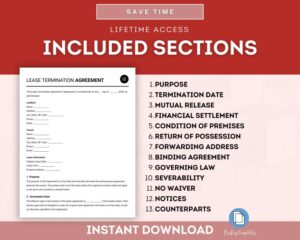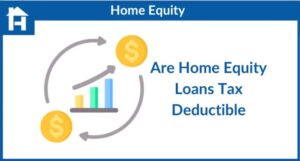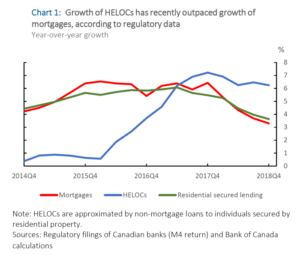
Welcome to the wild world of debt control, where managing your finances can feel like juggling flaming swords while riding a unicycle! But fear not, brave reader! With the right strategies, even the most tangled web of debt can be untangled.
In a land where credit cards reign supreme and monthly payments loom like dark clouds, understanding effective debt management techniques is key to reclaiming your financial sunshine. We’ll explore practical methods, from creating stellar debt management plans to budgeting techniques that keep your spending in check and your wallet happy.
Debt Control Strategies
When it comes to managing personal debt, it’s less about dodging creditors like a ninja in a stealth mission and more about strategic planning and smart budgeting—think of it as choreographing a dance that keeps you in tune with your finances. Life may throw financial curveballs your way, but with the right techniques, you can juggle them like a pro.
Debt management plans (DMPs) are your financial GPS, guiding you through the often winding roads of repayment. These plans involve working with a credit counseling service to consolidate debts, lower interest rates, and create a manageable payment schedule. Not only do they simplify your financial landscape, but they also keep your creditors at bay, allowing you to focus on your repayment journey without the drama of constant reminders.
Creating a DMP usually involves listing all debts, monthly income, and expenses to determine a feasible payment plan.
Budgeting Techniques to Prevent Overspending
A budget is like a financial safety net; it’s a way to keep you from falling into the pit of debt while also allowing you to enjoy life’s little pleasures—like that artisanal coffee you swear you need to function. Successful budgeting requires discipline, but it doesn’t have to be a joyless task. Here are some effective budgeting techniques that can help you keep your spending in check:To ensure a robust financial plan, consider employing the following techniques:
- The 50/30/20 Rule: This simple rule suggests allocating 50% of your income to needs (bills, groceries), 30% to wants (dining out, hobbies), and 20% to savings or debt repayment. It’s like having your cake and eating it too—just in controlled portions!
- Zero-Based Budget: This method involves assigning every dollar a job until you reach zero at the end of the month. It’s a bit like playing Tetris with your finances, making sure every piece fits perfectly.
- Envelope System: Use actual envelopes for different spending categories. Once the cash in an envelope is gone, that’s it. It’s a tactile way to experience where your money goes, and it can be harder to overspend when you see those envelopes depleting.
- Track Expenses: Keeping a detailed log of your expenses can reveal spending patterns, helping you identify areas where you can cut back. Just like a detective, you’ll uncover the mystery of where your money disappears!
Implementing these budgeting techniques can help you avoid the pitfalls of overspending and keep your financial health in check. Remember, it’s all about creating a lifestyle that balances enjoying today with saving for tomorrow.
“Budgeting isn’t about restricting yourself—it’s about making room for what really matters.”
Debt Relief Options
When the bills pile up like your laundry after a week of procrastination, it’s time to explore some debt relief options. Debt relief programs can be a lifesaver, offering a white flag in the battle against financial chaos, turning frowns into smiles—at least until the next bill arrives. Understanding the various strategies can help you regain control over your finances and bring some peace back to your wallet.Debt relief options serve as a toolbox filled with gadgets designed to help you fix your financial woes.
These programs can range from credit counseling to more complicated arrangements like debt settlement. Each option has its own quirks and merits, making it crucial to understand how they work before diving in headfirst. Here’s a closer look at what these programs entail and how they differ from one another.
Debt Consolidation vs. Debt Settlement
Debt consolidation and debt settlement are two primary strategies in the debt relief arena, but they’re as different as cats and dogs—both can be lovable, yet they require different care.Debt consolidation combines multiple debts into a single loan, ideally with a lower interest rate. Think of it as throwing all your sticks and stones into one fabulous basket rather than juggling them haphazardly.
For example, if you have five credit cards with varying interest rates, a debt consolidation loan can help you simplify your payments into one tidy package. In contrast, debt settlement involves negotiating with creditors to settle your debts for less than you owe. Picture this: you owe $10,000 and through the magic of negotiation (and perhaps a dollop of charm), you settle for $7,000.
You pay that amount, and—ta-da!—the debt is resolved. However, beware! This option can negatively impact your credit score, so it’s best approached with caution.
Resources for Debt Relief Assistance
Finding the right assistance for debt relief can be daunting, like searching for a needle in a haystack, except the needle is a reputable program, and the haystack is made of shady offers and high fees. Here’s a curated list of resources to guide you in your quest for financial freedom:
- National Foundation for Credit Counseling (NFCC)
-Offering certified credit counselors who can provide tailored advice and support. - Debt.org
-A comprehensive site packed with educational materials and resources for individuals seeking debt relief. - Credit Karma
-Not only can you check your credit score for free, but they also provide personalized recommendations for debt relief options. - Consumer Financial Protection Bureau (CFPB)
-A government agency that provides advice on managing debt and avoiding scams. - Debt Management Plans (DMPs)
-Many nonprofit credit counseling agencies offer these plans to help you pay off debt through a structured program.
In a world filled with financial pitfalls, these resources can help you navigate the murky waters of debt relief. Choose wisely, and you might just find the light at the end of the tunnel—or at least a decent flashlight to help you find your way!
Credit Counseling and Its Importance

When life throws you a financial curveball, credit counseling steps in like a superhero, cape and all, ready to save the day! It’s a service designed to help you navigate the choppy waters of debt, making sure you don’t just float but actually swim to financial freedom. Credit counseling isn’t just about balancing your budget; it’s about crafting a sustainable financial future that doesn’t involve living off ramen noodles or hoarding coins in a jar.Credit counseling agencies offer a variety of services that go beyond just chatting about your bills.
They’re like your financial GPS, guiding you through the winding roads of credit management. Key services include budgeting assistance, debt management plans, and education on credit scores and reports. With a credit counselor by your side, you’re not just tackling your debts; you’re also gaining a clearer understanding of how to make your money work for you, not against you.
Key Services Offered by Credit Counseling Agencies
Credit counseling agencies provide a suite of services tailored to help individuals regain control over their financial situations. These services can transform your financial woes into wise money moves. Here are some essential services you might find:
- Debt Management Plans (DMPs): A structured program where the credit counselor negotiates with creditors to lower interest rates and monthly payments, consolidating your debts into one manageable payment.
- Budgeting Assistance: Personalized budgeting help to track income and expenses, ensuring you’re living within your means (sorry, no more impulse buys on those neon crocs).
- Credit Report Review: Experts will examine your credit report for errors or inaccuracies that could be hurting your score, like a detective investigating a crime scene.
- Financial Education Workshops: Classes and resources to boost your financial literacy, because knowing your credit score is as important as knowing your Netflix password.
- Debt Settlement Services: Guidance on negotiating settlements with creditors, potentially saving you a chunk of change on what you owe.
The Process of Working with a Credit Counselor
Engaging with a credit counselor is like going to the gym for your finances—at first, it may feel daunting, but soon you’ll be flexing your budgeting muscles! The process typically goes something like this:
1. Initial Consultation
You’ll sit down (or log in) for an assessment of your financial situation. This includes a review of income, expenses, debts, and financial goals. Think of it as getting your financial blood pressure checked!
2. Creating a Plan
After understanding your situation, the counselor will develop a personalized plan, which may include a DMP or strategies for improving your budgeting.
3. Implementation
You’ll begin to follow the plan, with regular check-ins to adjust as needed. It’s like having a financial coach who cheers you on every step of the way.
4. Ongoing Support
Many agencies offer ongoing counseling and support, which can be a lifesaver when unexpected financial hiccups arise.
Guide on Selecting a Reputable Credit Counseling Service
Finding a reputable credit counseling service is key to making sure you’re not just spinning your wheels in a mud puddle of debt. Here’s a handy guide to ensure you pick the right one:
- Check for Accreditation: Look for agencies that are accredited by the National Foundation for Credit Counseling (NFCC) or the Financial Counseling Association of America (FCAA). If they’re not, run away—fast!
- Read Reviews: Search for reviews and testimonials from other clients. If everyone’s saying, “They saved my financial life!” you’re on the right track.
- Free Consultation: Reputable agencies often offer a free initial consultation. If they’re asking for money upfront, it’s time to hit the brakes.
- Transparency: A good credit counseling service will clearly explain their services and fees without any sneaky fine print. If they dodge your questions like a game of dodgeball, consider it a red flag.
- Explore Their Services: Ensure they offer a comprehensive range of services tailored to your needs. If they only have one tool in their toolbox, they may not be the best fit.
“Choosing the right credit counseling service is like choosing a good pizza—make sure it has all the toppings you want and none of the mystery meat!”
Ultimate Conclusion

So there you have it, intrepid financial adventurer! With the knowledge of debt control strategies, relief options, and the importance of credit counseling, you’re now equipped to tackle your debt like a pro. Remember, every great journey begins with a single step—preferably one that leads toward financial freedom!
Essential FAQs
What is the first step to take for debt control?
The first step is to assess your current financial situation, including debts, income, and expenses, to understand where you stand.
How can I create a budget to manage my debt?
Create a budget by listing all your income and expenses, then allocate funds to both necessary expenses and debt repayment, ensuring you live within your means.
What is the difference between debt consolidation and debt settlement?
Debt consolidation combines multiple debts into a single loan with a lower interest rate, while debt settlement negotiates to reduce the total amount owed.
How can credit counseling help me?
Credit counseling provides personalized advice and creates a plan to manage your debts effectively, often negotiating with creditors on your behalf.
Are debt management plans effective?
Yes, debt management plans can be very effective, helping you pay off debt in a structured way, often with lower interest rates and monthly payments.







